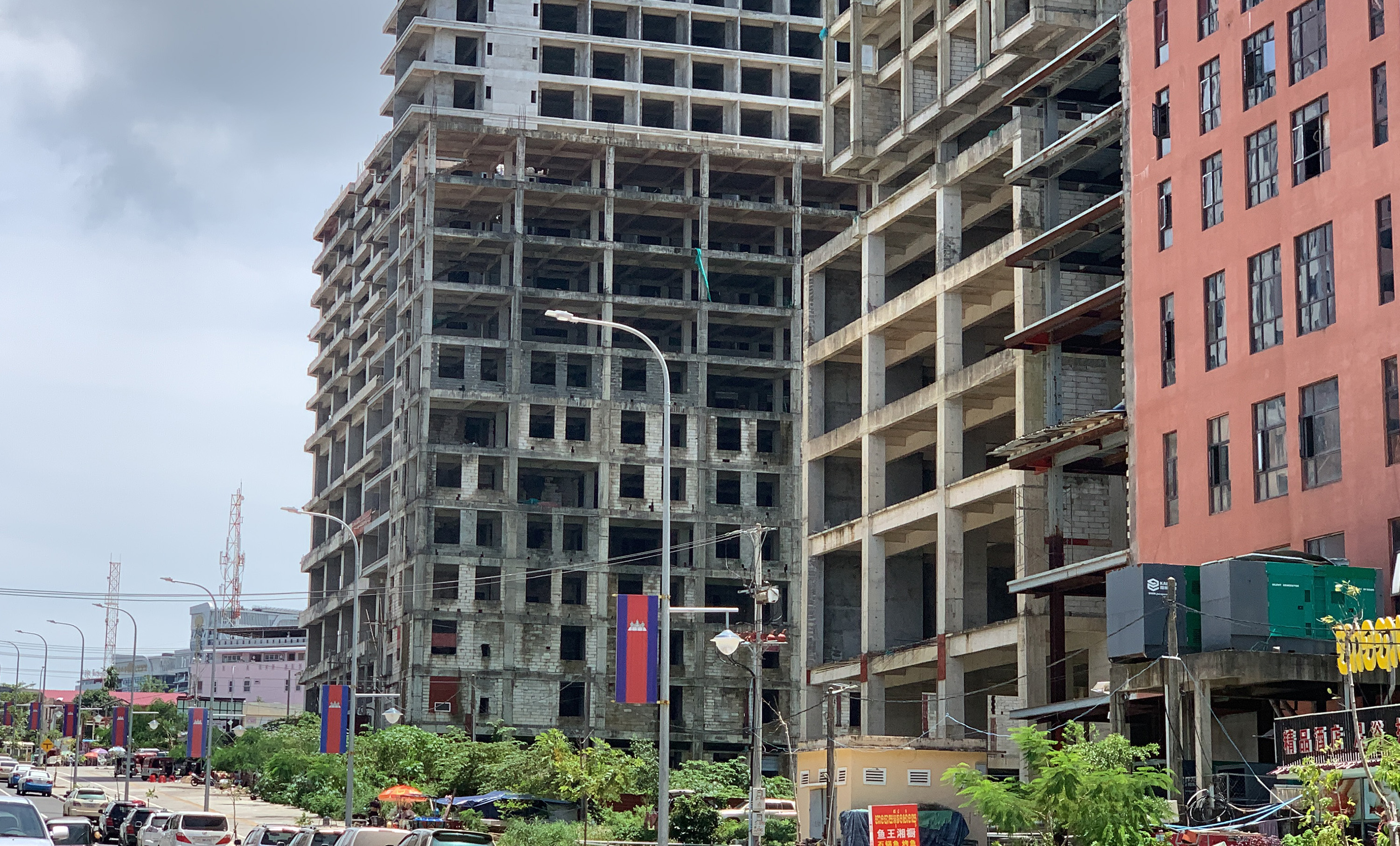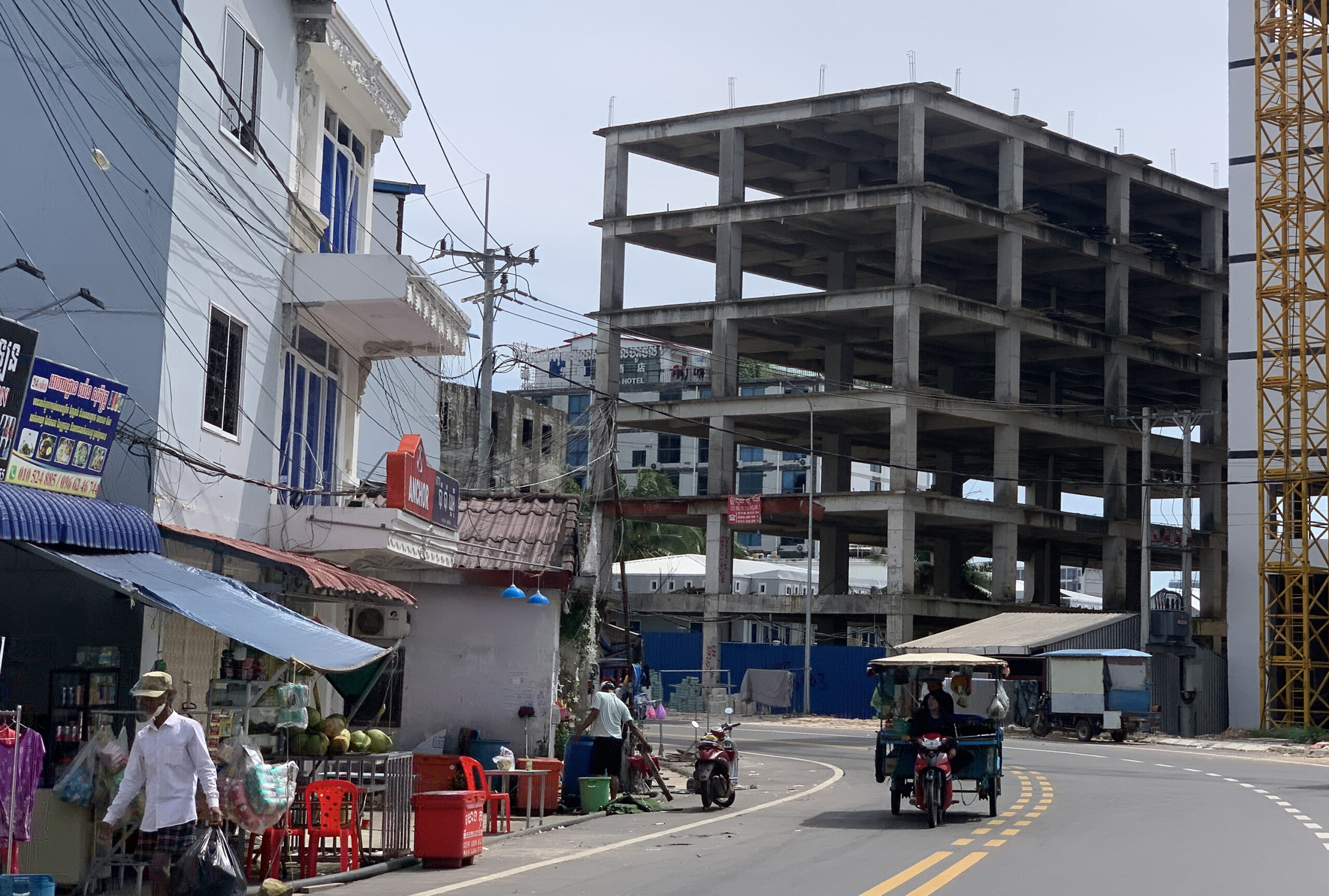Cambodian Prime Minister Hun Manet blamed bad foreign press for the abrupt end to a development boom in the coastal resort of Sihanoukville that has left hundreds of derelict buildings in its wake.
“It takes a long time to build a good reputation so that people will want to come to visit Angkor Wat but [this reputation] was destroyed within only six months after a few articles from Al Jazeera,” he said, without elaborating on specifically what the Qatar-based news outlet had reported.
In 2019, Al-Jazeera published a scathing piece about crime-ridden casinos in Sihanoukville, and in 2022 it produced a documentary about cyber slaves–people duped into working as scammers, usually in casinos–after they were promised high-paying jobs.
Hun Manet’s remarks came at a forum to promote investment in Sihanoukville, where according to data by the Ministry of Finance there are 362 so-called “ghost buildings” – hotels, restaurants or casinos funded by Chinese investors who pulled out before construction was completed.

Hun Manet unveiled a plan to deal with the problem, which would allow special visas and tax incentives for investors to purchase the buildings worth more than US$1 million on the condition that they fix and maintain them.
“We will consider tax exemptions [for those who buy the ghost buildings and fix them] but we need to set conditions so that they are actually fixing them instead of sitting on them for resale,” Hun Manet said.
He said the government will also make Sihanoukville more attractive by introducing duty free zones, investing in infrastructure and fostering the creation of resorts and other services for tourists. And to prevent further bad press, Sihanoukville province should do more to prevent crime.

Minister of Finance Aun Pornmoniroth told the forum that Cambodia needed US$1.1 billion to take care of the ghost building problem.
“Back in 2016 investment in Sihanoukville was booming, especially in construction of restaurants, hotels and shops, but since 2019, due to the financial crisis and COVID-19 everything stopped,” he explained.
In addition to the 362 ghost buildings there are an additional 176 buildings that are complete, but are not being used, he said.
Concerning incentives
The new incentives might bring more casinos to Sihanoukville concerns Cheap Sotheary, the provincial coordinator for theCambodian Human Rights and Development Association.
He told RFA Khmer that the province would have to deal with more crime, drugs and human trafficking unless it seeks out other kinds of investment.
“[Casinos] bring in gamblers through and sell drugs, alcohol and sex,” she said. “People don’t want to see this kind of investment.”
Social and political commentator Por Makara said corruption has scared away Western investors.

“The ghost building situation will worsen because only Chinese investors … will be willing to deal with all the corruption,” he said. “European and American investors don’t want to be involved with human rights abuses.”
Political commentator Kim Sok told RFA that the government’s incentives would not attract good businesspeople to invest in the restoration of ghost buildings in Sihanoukville. He said that the main reason why Cambodia lacks good businessmen now is because the legal system is trampled by powerful people, corruption and crime.
“Hun Manet’s incentives won’t help the national or local economy but are only good for money laundering. Good investors won’t invest in those buildings,” he said.
The International Monetary Fund on Wednesday said in a report that Cambodia is on a “recovery trajectory post-pandemic.” The country’s GDP grew 5.2% in 2022 and is projected to grow 5.3% in 2023, “fueled by a resurgence in tourism,” which saw gains due to the 2023 South-East Asia Games.
Translated by Samean Yun. Edited by Eugene Whong.


